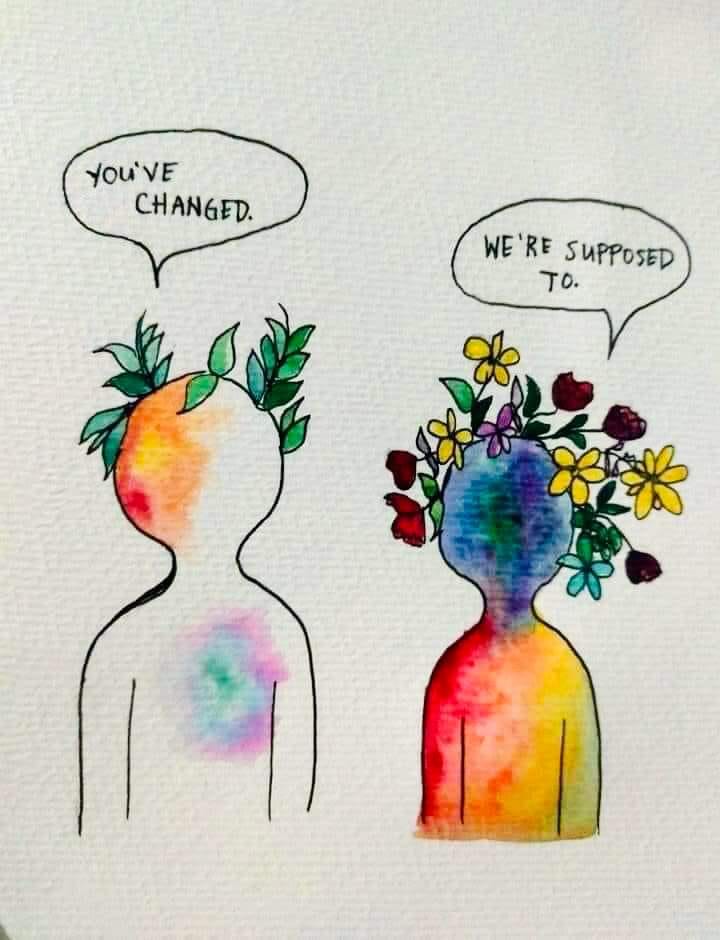Side effects or a "healing crisis"?

 Understanding the efficacy and safety of any medication or treatment can feel overwhelming at times. But researching the side effects of your options makes you a responsible consumer. I hope you do this every time you are considering a traditional or alternative practice, regardless of the provider’s qualifications.
Understanding the efficacy and safety of any medication or treatment can feel overwhelming at times. But researching the side effects of your options makes you a responsible consumer. I hope you do this every time you are considering a traditional or alternative practice, regardless of the provider’s qualifications.
NeurOptimal® neurofeedback should receive the same scrutiny. NeurOptimal® is not a medical treatment. Instead, it is a brain training system approved as a general wellness device by the FDA in 2018. The vast majority of NeurOptimal® clients report positive benefits with zero side effects. Occasionally, some users do experience temporary discomfort that clients should be aware of before they choose to proceed.
A day or two of processing may follow the release of trapped emotions and other energies. It is possible that you may have some symptoms of this, such as emotional ups and downs, vivid dreams, or a bit of fatigue. If you do notice anything like this, don’t worry, it’s just part of the healing process and shouldn’t last for more than a day or two.
Feeling Tired
Some clients compare neurofeedback to the brain equivalent of physical exercise. Just like a visit to the gym can leave you feeling temporarily worn out, NeurOptimal® sessions can result in feelings of tiredness and sleepiness in some clients. I personally do not consider feeling tired after a good workout at the gym a "side effect". From my personal observation, typically, clients feel tired in the first couple of sessions while their brain is adjusting to the new experience. For most users (me included), NeurOptimal® does not feel like exercise at all.
Do you know people who are always on the go, but as soon as they sit in a relaxing chair with a book to read, they suddenly start yawning? Maybe that even describes you. For many, the feeling of deep relaxation is so unusual that they confuse it with feeling tired or sleepy. This is how some clients describe their feelings when they complete a neurofeedback session.
If this happens to be your experience, rest assured that the feeling is temporary.
Feeling Emotionally Uncomfortable or Discontented
NeurOptimal® does not actually make you unhappy. Just like a mirror shows you your physical self, neurofeedback provides your brain with information about itself. Then the brain can decide which changes it wants to make.
Imagine you haven’t looked at yourself in the mirror for days or even weeks, and then you suddenly decide to check out your reflection. You might notice that your hair is a mess, your face is dirty, or you have spinach in your teeth. You may not be happy to see all of that. But would you blame the mirror?

If you feel “off” after a NeurOptimal® session, take a closer look at what is behind that feeling. Are you finally acknowledging the reality that something or someone in your life does not serve you? Do you feel stuck in an unfulfilling job or a toxic relationship? Do you suddenly see a need to make uncomfortable (but necessary) changes?
NeurOptimal® cannot solve these issues, but it can bring awareness of the root causes that clients may need to address. Individuals who seek brain training with neurOptimal® are generally looking for a lasting sustainable change. If it's a temporary relief you are after, a glass of wine, a chocolate bar, or a pain pill would do.
Remember that without discomfort there is no growth.
If you have deep unresolved trauma, it’s often helpful to combine neurofeedback with counseling or coaching. An experienced therapist will help you sort out these feelings and give you professional guidance on taking necessary steps toward your goals.
“Restlessness is discontent, and discontent is the first necessity of progress. Show me a thoroughly satisfied man, and I will show you a failure.”
Thomas A. Edison
Feeling Anxious
In my professional experience using neurOptimal®, clients seeking help with anxious minds find calm and peace. I’ve heard people say “Wow, my mind is not racing anymore!” as soon as their first session. But once in a while, an occasional client will feel an uptick in their anxiety. This temporary feeling can flare up in the very early stages of brain training. It is most common for individuals who already experience anxiety or another type of chronic hyper-arousal of their central nervous system. This is as if the anxiety does not want to let go without a fight, after all, feeling anxious is a protective mechanism to keep you safe! It’s fighting to stay in control.
NeurOptimal® brain training is intended to move you to a relaxed state where healing is possible. People with complex trauma histories can sometimes get very uneasy when their hyper vigilance is relaxed.
I’ve had a couple of clients report feeling deeply relaxed after their first neurofeedback session. But then later that day or sometime the next day, the feeling of relaxation swiftly gives way to some anxiety. Or the client may experience an unusually strong emotional outburst.
Many of us live in a perpetual state of fight, flight, or freeze. We are so accustomed to that state that it feels normal to us. When NeurOptimal® allows your brain to make changes from that “home state”, the brain often will choose to make adjustments.
However, feeling relaxed may be so foreign that your body can panic and tighten back up. This reaction will bring renewed anxiety until the brain receives enough training to find a new, healthier home base.
During these (much less common) responses to neurofeedback, your body might be following the axiom, “Better the devil I know than the angels I don’t.” It is trying to process the new state of feeling relaxed and comfortable, rather than hyper aroused. If you experience this after a session, rest assured that the feeling is temporary while the brain learns to find its new normal.
Psychotherapist and fellow NeurOptimal® practitioner, Carol Ann Rowland of Halton Therapy and Neurofeedback, encourages clients to observe these intense emotions with neutrality. She suggests that users of NeurOptimal® should recognize their feelings and then let them float by rather than allowing them to take over. And then the client should have another session as soon as possible. Continued training will help you move past this emotional response.
Feeling Your Emotions
Feeling emotionally numb is a protective response for some people who have experienced trauma. Just like an electric circuit will shut off if there is a surge of too much electricity, your brain can suppress strong emotions if it doesn’t know how to handle them effectively.
As NeurOptimal® trains your brain to be more resilient against stress, suppressed emotions may surface. Although these feelings might be startling and maybe even scary, experiencing more emotions can be a good thing. It means the feelings are coming out, rather than being held in. When we keep in feelings or suppress them, they manifest in the body in many unhealthy ways such as pain or chronic illnesses.
If you experience these temporary emotions, recognize that they provide an opportunity to do some self-reflection. Moving out of the numb state that many people experience requires change. This necessary step can be uncomfortable, but it is a healthy step toward true wellness.
“Suppressing feelings is never a good thing...if you feel angry, sad, happy, etc...FEEL IT! Go somewhere & scream, sit in silence, cry, laugh till your stomach hurts! Just don't let it linger...what you suppress you also subconsciously attract! What are you suppressing?”
― Sanjo Jendayi
After researching many different neurofeedback systems, I specifically chose neurOptimal® not only for it's effectiveness, but also for lack of side effects that sometimes come with traditional neurofeedback. Here's an article that explains what makes neurOptimal® so unique.
Some individuals reading this article may conclude that none of the above are actually real "side effects". And you are right! After all, we all may experience discomfort when dealing with changes or adjustments. Take removing sugar from your diet, for example. You are likely going to feel something uncomfortable in your body and in your emotions initially (even though you very well know about a long term benefit effect).
If you are concerned about any of the above "side effects", rest assured that these experiences while possible, are not common. While the majority of individuals coming to their first session do expect to feel tired, some end up feeling quite a bit energized instead.
At Beaverton Neurofeedback, we are honored by the trust clients place in us. It is hard work to undergo the emotional shift that brain training can bring about, but it is well worth it. Give us a call today to start taking control of your wellness.



